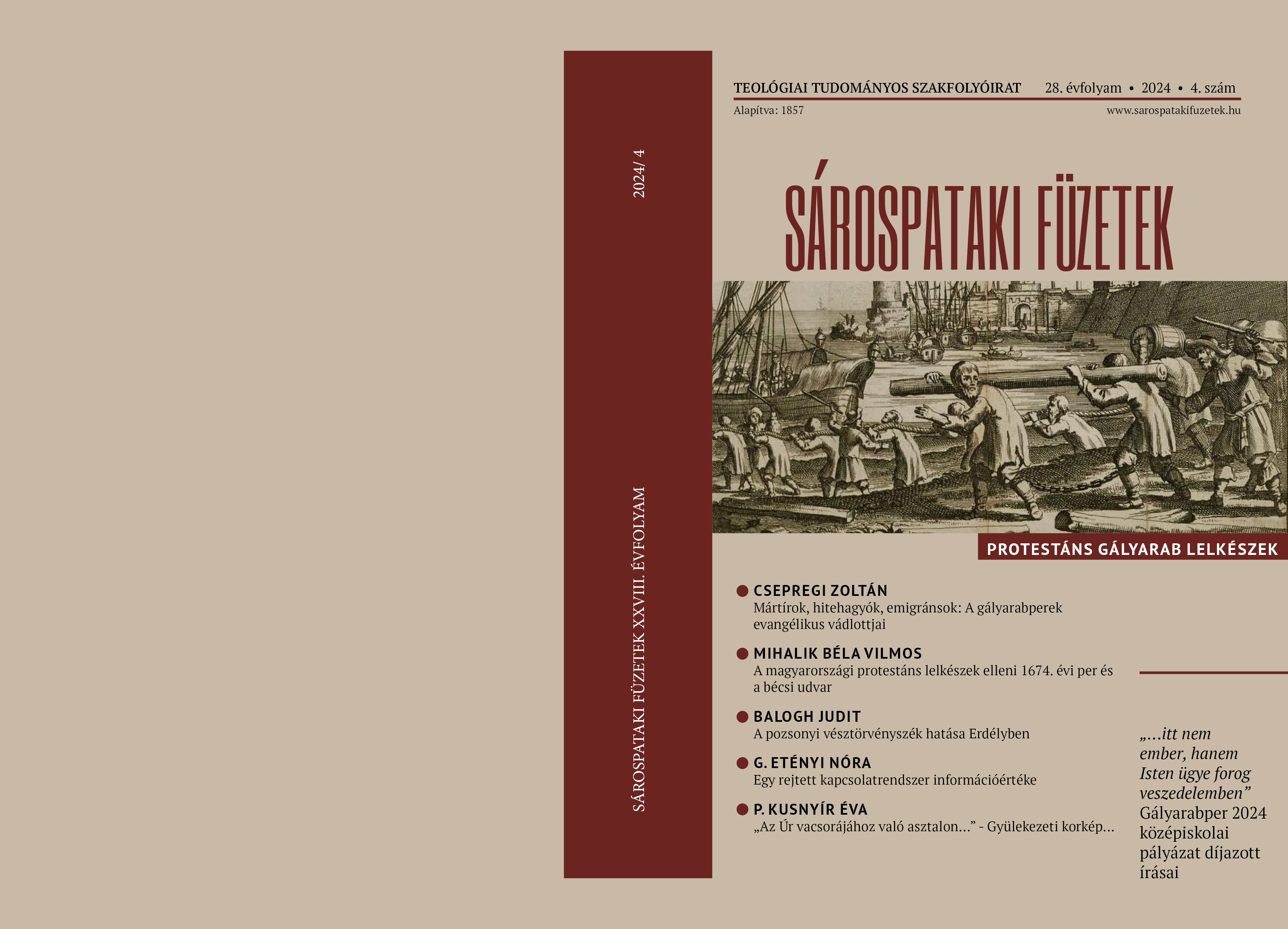The information value of a hidden social network
The situation of the Lutherans in Hungary as described in the reports of Johann Joachim d'Orville (1633–1688) resident of Hesse-Kassel at the Perpetual Diet of Regensburg
DOI:
https://doi.org/10.59914/SF.28.2024.4.6Keywords:
Johann Joachim D'Orville, printed weekly newspapers, manuscript news flow, imperial assembly, evangelical sense of belongingAbstract
Between 1671 and 1681, during the period when Leopold I sought to establish absolute rule, the multifaceted crisis of the Protestant communities in Hungary was intensely debated in the international public sphere, particularly in the printed political discourse of the Holy Roman Empire. The reports of Johann Joachim D'Orville (1633-1688), diplomat representing the principality of Hesse-Kassel at the Imperial Diet of Regensburg, prove that the issue of Hungarian Protestants was prominently and diversely present in the political discourse of the Holy Roman Empire, not only during the open religious conflict of the 1670s, but also in the 1680s, during the great trials of the war against the Ottoman Empire. The resident of Hesse-Kassel in Regensburg had a wealth of information about the political significance of the 1681 Diet of Sopron, the role of Palatine Pál Esterházy, the negotiations with Imre Thököly, and the actions of Lipót Kollonits (1631-1707), the later cardinal and archbishop, then bishop of Veszprém, against the Protestants. The Hessian envoy also observed Kollonich's role in his chamber presidency, which brought about major changes in the everyday life of the free royal cities.
D'Orville's secretary, Niklas Wilhelm Göddäus (1646-1719), continued to report regularly on the situation of Lutherans in Hungary after the 1681 Diet, based primarily on information obtained from Lutherans in Sopron. Justus Eberhard von Passer (1652-1733), later ambassador of Hesse-Darmstadt to Vienna in 1692 and 1704, may have helped him obtain information, as he had a multifaceted view of life in the imperial city and also had substantial knowledge of the political situation in Hungary. D'Orville received reliable information from Johann Jonas Schrimpft, the chargé d'affaires of Hesse-Kassel in Vienna, who served as an agent and then as a resident in Vienna between 1649 and 1696.
The reports of Hessen-Kassel's well-informed resident in Regensburg prove that although the printed news of the Turkish War and the suppression of the Thököly uprising partly "obscured" the more politically sensitive confessional issues in the 1680s, the changes in the internal political balance of power in the Kingdom of Hungary and the shrinking opportunities for urban Lutheran communities were clearly evident in less public background discussions and in diplomatic reports in manuscript form.
Downloads
Downloads
Published
Conference Proceedings Volume
Section
Categories
License
Copyright (c) 2025 G. Etényi Nóra (Szerző)

This work is licensed under a Creative Commons Attribution 4.0 International License.
The author(s) reserve the copyright of their work.
The Sárospatak Notebooks does not restrict the rights of authors to place their manuscripts or manuscript versions on preprint servers or other hosting. This applies generally to the following formats.
- Submitted Version
- Accepted Version (Author Accepted Manuscript)
- Published Version (Version of Record)









